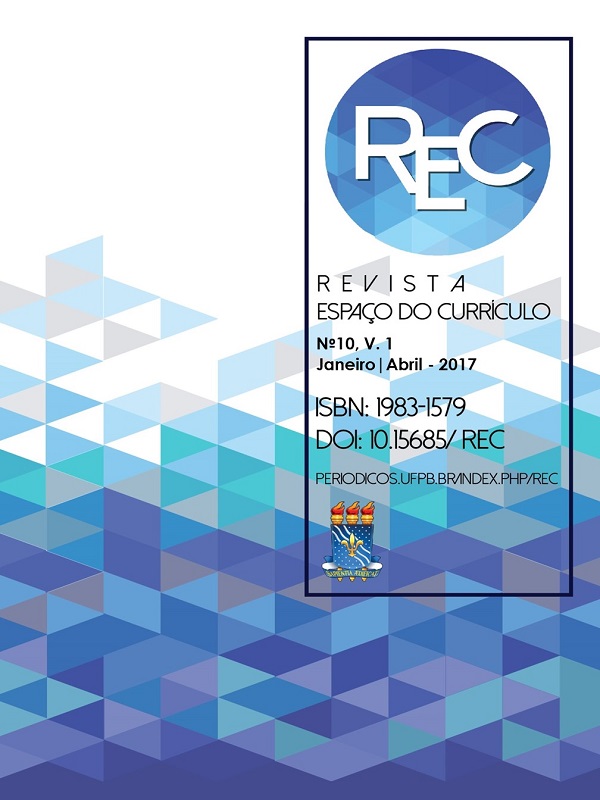CURRICULUM AND TRAINING POLICIES IN ADMINISTRATION AND EDUCATIONAL MANAGEMENT
current challenges and dilemmas
DOI:
https://doi.org/10.15687/rec.v10i1.33936Keywords:
Training in school administration and management, Curriculum policy, EducationAbstract
As stated in the Lima and Torres text included in this dossier, “Educational administration is currently an expanding scientific area, with a remarkable investigative dynamism and growing social and political visibility.” Despite this dynamism and increasing visibility, some ambiguities persist regarding its epistemological and academic status, ambiguities that are manifested, as advocated by Barroso (2001, p. 8), not only in its designation, “but above all in its origins, in its identity as a discipline and field of study, in its scientific status ”. With regard to the designation, there is some semantic dispersion, reflected in the diversity of expressions used in the various countries to name this curricular area and field of study, of which Portugal and Brazil are good examples, a dispersion reflected, right away, in the senses diverging from the concepts of administration, direction and management on both sides of the Atlantic (see in this regard, among others: BARROSO, 1995; FALSARELLA, 2006; LÜCK, 2009; OLIVEIRA, 2002; SANDER, 2007).
Downloads
Metrics
References
BARROSO, João. Para uma abordagem teórica da reforma da administração escolar: a distinção entre direcção e gestão. Revista Portuguesa de Educação, v. 8, n. 1, p. 33–56, 1995.
BARROSO, João. Teorias das Organizações e da Administração Educacional. Relatório de Agregação. Lisboa: Universidade de Lisboa, Faculdade de Psicologia e Ciências da Educação, 2001.
BRASSARD, Andrè. L’institutionnalisation du champ d’études de l’Administration de l’éducation: une Analyse Critique de l’Expérience Québécoise. Revue Française de Pedagogie, v. 130, p. 15–28, 2000.
CORREIA, José Alberto. Para Uma Teoria Crítica em Educação. Porto: Porto Editora, 1998.
FALSARELLA, Ana Maria. As origens da Administração Educacional. Revista Psicopedagogia Online, 2006.
GRIFFITHS, Daniel E. The Nature and Meaning of Theory. In: GRIFFITHS, DANIEL E. (Org.). Behavioural Science and Educational Administration. Chicago: The University of Chicago Press, 1964. p. 95–118.
HALPIN, Andrew W. The Development of Theory in Educational Administration. In: HALPIN, ANDREW (Org.). Administrative Theory in Education. New-York: The Macmillan Company, 1967. p. 1–19.
LIMA, Licínio C.; AFONSO, Almerindo Janela. The Promised Land: school autonomy, evaluation and curriculum decision making in Portugal. Educational Review, n. 2, p. 165–172, 1995.
LÜCK, Heloísa. Dimensões da gestão escolar e suas competências. Curitiba/PR: Editora Positivo, 2009.
OLIVEIRA, Dalila Andrade. Mudanças na organização e na gestão do trabalho na escola. In: OLIVEIRA, DALILA ANDRADE; ROSAR, MARIA DE FATIMA FELIX (Org.). Política e Gestão da Educação. Belo Horizonte: Autêntica, 2002. p. 125–143.
SANDER, Benno. Administração da Educação no Brasil: genealogia do conhecimento. Brasília: Liber Livro, 2007.
SIMÕES, Graça Maria Jegundo. A auto-avaliação das escolas e a regulação da acção pública em educação. Sísifo: revista de ciências da educação, n. 4, p. 39–48, 2007.
WHITTY, Geoff. Autonomia da Escola e Escolha Parental: Direitos do Consumidor versus Direitos do Cidadão na Política Educativa Contemporânea. Educação, Sociedade & Culturas, v. 6, p. 115–139, 1996.
ZUNG, Acácia Zeneida Kuenzer. A teoria da administração educacional: ciência e ideologia. Cadernos de Pesquisa, v. 48, p. 39–46, 1984.
Downloads
Published
How to Cite
Issue
Section
License
By submitting an article to Curriculum Space Journal (CSJ) and having it approved, the authors agree to assign, without remuneration, the following rights to Curriculum Space Journal: first publication rights and permission for CSJ to redistribute this article. article and its metadata to the indexing and reference services that its editors deem appropriate.
















